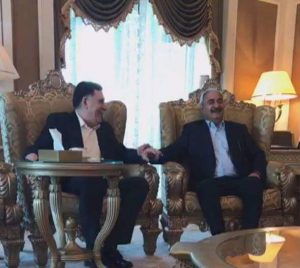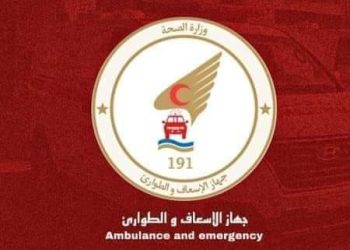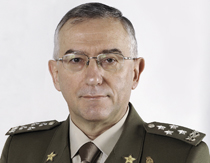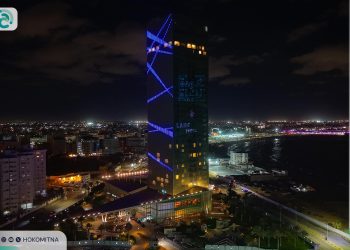By Jamie Prentis.

Tunis, 3 May 2017:
No joint statement has emerged from the Khalifa Hafter-Faiez Serraj Abu Dhabi talks and separate comments from each side differed to a certain extent.
Neither referred to unconfirmed reports that the Presidency Council (PC) would be reduced from nine members to three, nor that the controversial Article Eight would be removed. This takes with the ultimate command of the armed forces away from the House of Representatives (HoR) and vests it with the PC . Both sides did agree that a ceasefire in southern Libya was of the utmost importance.
The PC declaration and the statement from the pro-Hafter LANA News Agency also converged on the need to fight terrorism and develop an effective army.
LANA reported Hafter speaking of the “continuation of the war on terrorism” whilst the PC said it was important to “unite efforts (and the army) to fight terrorist groups”.
However, the LANA report focused on the importance of lifting the UN-imposed weapons embargo to achieve those goals.
It also said the “obstacles that prevented the implementation of the political agreement” were discussed.
Whilst the PC statement did not mention this in such a direct way, it did allude to an expansion of “community dialogue” in order to “overcome the current transitional phase as soon as possible”.
Ensuring “a peaceful transfer of power” was also necessary the PC said and added that dialogue was integral to achieving a national consensus.
Alleviating the suffering of ordinary Libyans and protecting the country’s territorial integrity were also highlighted by both sides.
The PC statement noted the talks looked at easing the economic crisis, combating corruption in state institutions and helping the internally-displaced return home.
PC head Serraj and Libyan National Army chief Hafter finally met in Abu Dhabi yesterday after extensive diplomatic efforts to bring the two together.









